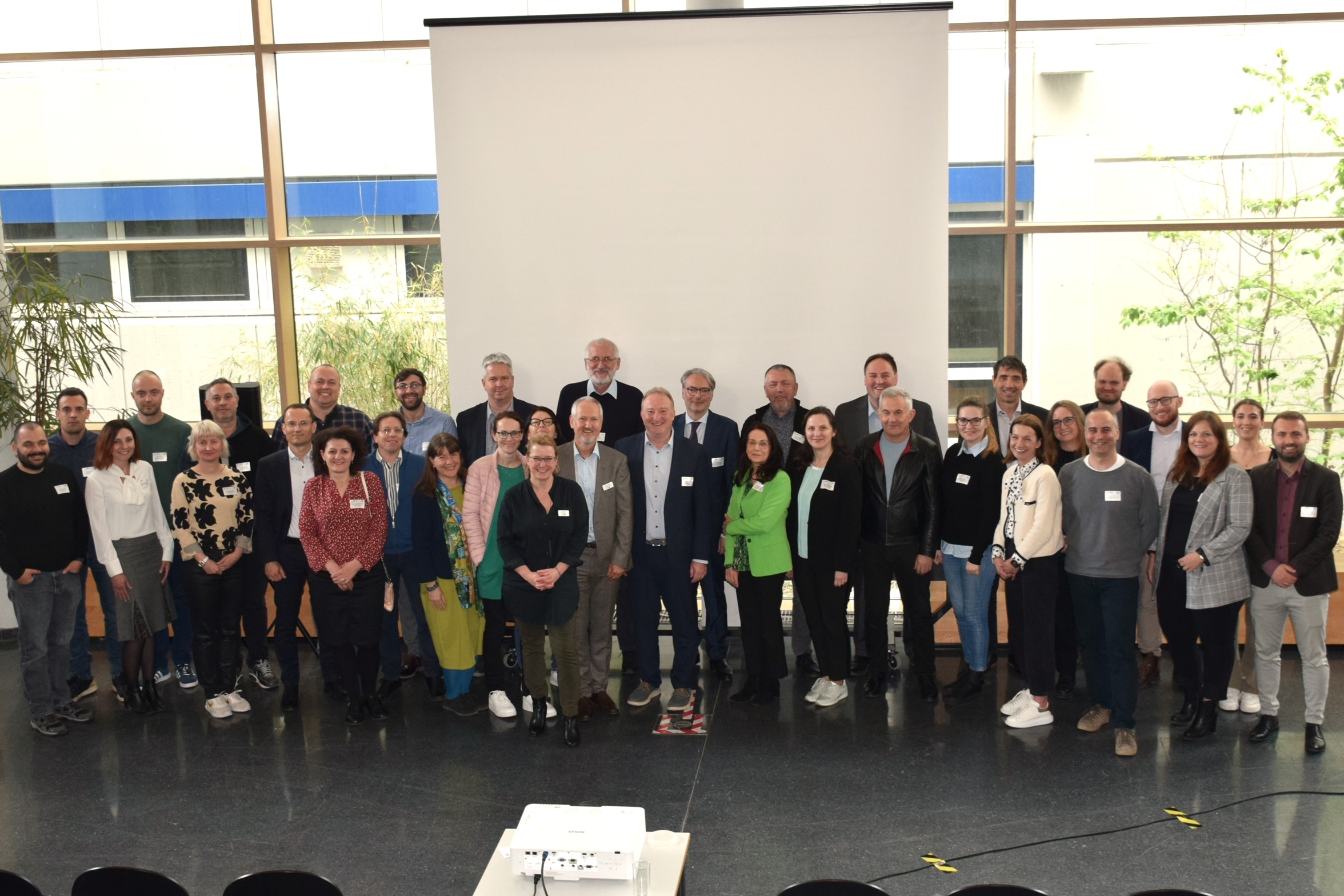
Project; ongoing
EUSDR Priority Area(s): PA 8 Competitiveness of Enterprises
Make sustainable products the norm in the EU; focus on the sectors that use the most resources and where the potential for circularity is high, including batteries and vehicles, packaging, textiles, plastics, ICT, construction and buildings, food, water, and nutrients; ensure less waste; make circularity work for people, regions, and cities. The development and implementation of Circular Economy Business Models (CEBM) meet common obstacles in the Danube Region such as local regulations contrary to the circular concept, lack of infrastructure for waste treatment, lack of recycling technology, and especially a lack of adequately planned business models. This is where the project aims to intervene by providing methods and tools to SMEs.
Objectives: Enhancing innovation and technology transfer in the Danube Region
The main goal of the project is the identification and implementation of successful circular economy business models within the Danube Region, and the application of innovative tools and methods to contribute to the goals of sustainable development in the EU. Examples of good practices for circular economy business models in the areas of food, textiles, packaging, and batteries were identified, but smart cities within the Danube Region were also recognised. These success models include appropriate tools and methods and the training of relevant actors with appropriate training that will be further transferred to transnational potentials.
Need and (expected) impact: Circular Economy Business Models (CEBM) are vital responses to future challenges, as seen in the EU Sustainable Development Goals (SDGs), Fit for 55 climate policies, and the EU Circular Economy Action Plan of March 2020. They aim to reduce CO2 emissions to 55% of 1990 levels by 2030, with national adaptation starting in 2023. CEBM modify value chains to improve product longevity, reuse, refinement, or material recycling sustainably. Regional action is key to success, reducing CO2 footprints and leveraging available technologies. However, dependence on national policies makes CEBM complex yet offers opportunities for transnational cooperation. In the Danube Region, fragmented geography and diverse regulations pose challenges but also foster innovation. Smaller countries like Slovenia and Croatia have doubled their Circular Economy activities and recycling rates in the past decade, contrasting with stagnation in highly industrialised northern Danube Region countries. Despite varying levels of Circular Economy maturity, opportunities for knowledge exchange exist within the Region. The DECIDE initiative aims to systematically survey, catalogue, and evaluate successful CEBM in the Danube Region, facilitating know-how transfer and leveraging digital tools for interlinking SMEs to Circular Economy Value Chain Networks. This aligns with PA 8 Strategic Frame objectives, focusing on establishing transnational digital value chains and fostering AI applications. The initiative dovetails with EUSDR Workplan objectives, particularly related to RDI activities, technology transfer, and circular economy policies.
Macro-regional dimension: Austria, Bosnia and Herzegovina, Bulgaria, Croatia, Germany, Hungary, Republic of Moldova, Romania, Serbia, Slovenia
Stakeholders involved:
Project partners:
- Centre for Digitalisation Böblingen District – ZD.BB GmbH, Business support organisation, Germany
- Reutlingen University, Herman-Hollerith-Center, Higher education and research organisation, Germany
- University of Zagreb, Faculty of Organisation and Informatics, Higher education and research organisation, Croatia
- Technology Innovation Centre Međimurje Ltd., Regional public authority, Croatia
- University of Maribor, Higher education and research organisation, Slovenia
- Pulp and Paper Institute, SME, Slovenia
- ANTEJA ECG D.O.O., Infrastructure and (public) service provider, Slovenia
- Sofia University, Science and Research Department Higher Education and Research Organisation, Bulgaria
- Omnipack First Hungarian Packaging Technology Cluster, SME, Hungary
- University of Medicine, Pharmacy, Science and Technology G.E.Palade of Targu Mures, Higher education and research organisation, Romania
- Alumni Association of Petru Maior University; Interest groups incl. NGOs, Romania
- Innovation Salzburg GmbH, Sectoral agency, Austria
- Social cooperative Humana Nova, Interest groups incl. NGOs, Croatia
- Alecu Russo Balti State University, Higher education and research organisation, Republic of Moldova
- Regional agency for the development of small & medium size enterprises Alma Mons Ltd. Novi Sad, Business support organisation, Serbia
- Sarajevo Economic Region Development Agency, Sectoral agency, Bosnia and Herzegovina
Associated partners:
- ICEBERG Plus SRL, Romania
- Chamber of Commerce and Industry Mures, Romania
- REGIONAL DEVELOPMENT AGENCY CENTRU, Romania
- EDIH Adria, Croatia
- District Office Böblingen, Germany
- Baden-Württemberg Stiftung, Germany
- Innova Észak-Alföld Regional Development and Innovation Agency, Hungary
- Chamber of Commerce and Industry of Serbia (CCIS), Serbia
Budget and Funding:
Total budget: EUR 2 886 750,05
Interreg funds: EUR 2 309 400,02
Further information:




